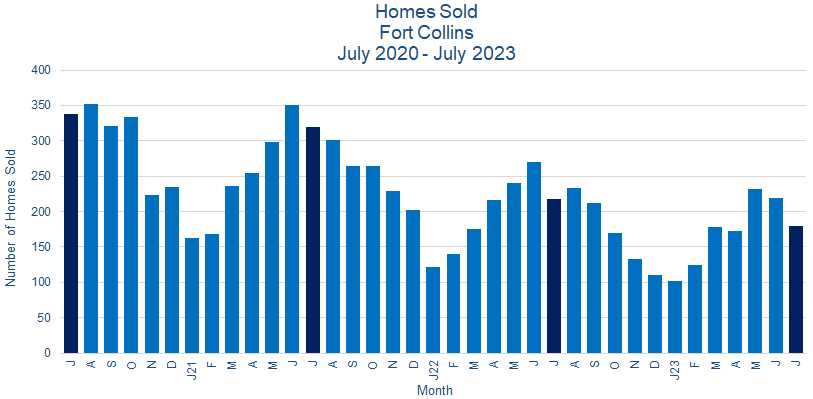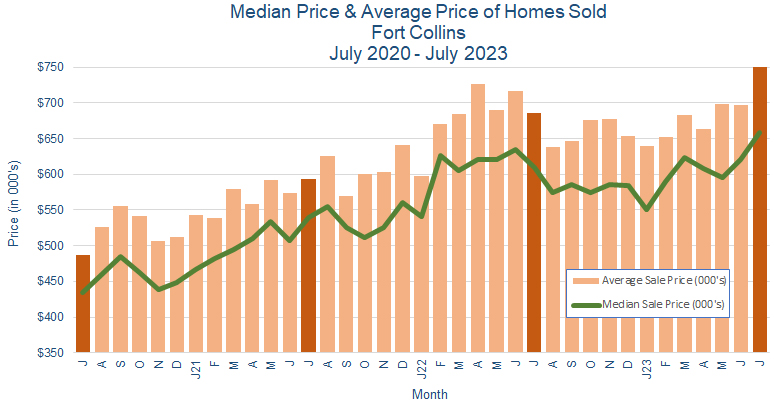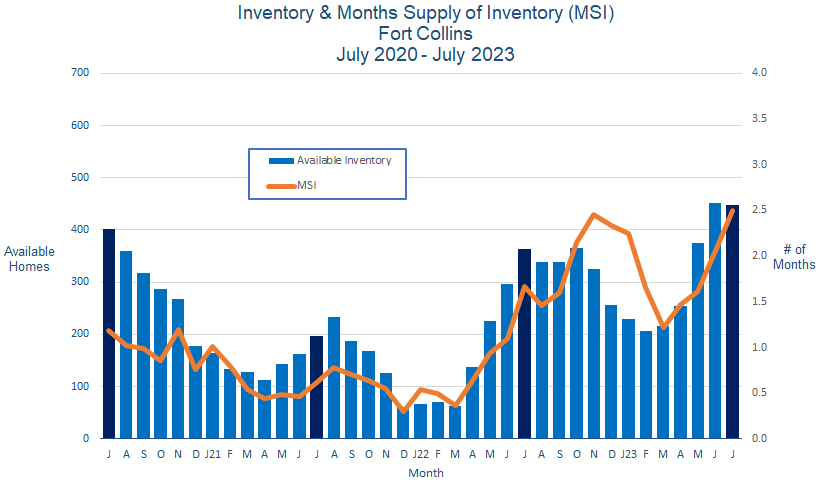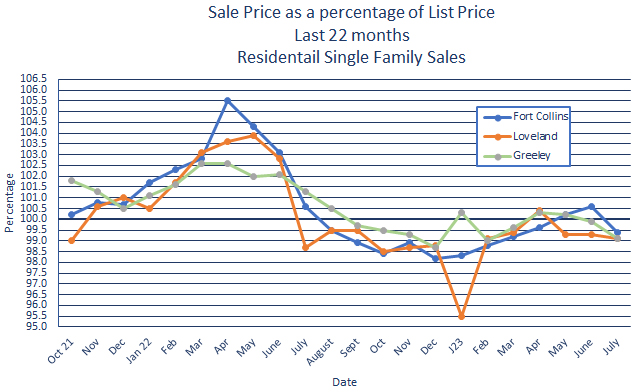This is the August 2023 Real Estate Market Update for Fort Collins CO
Sales:

Home sales declined in Fort Collins CO during July 2023. There were 179 homes sold, down 18.3% from 219 sales in June 2023, and down 17.9% from the 218 sold in July 2022. Of these 179 homes, 148, or 82.7%, were priced over $500K. 2023 year-to-date sales of 1,208 homes were off 14.1% from 2022's 1,382 sales for the same period.
Prices:

Home prices rose in July 2023. The median price rose 6.3% to $659K from $620K in June 2023, while the average price rose 7.6% to $750K from last month's $697K. It's important to note that this number - reporting the specific sales during the last month - reflects more the concentration of sales in higher price ranges than an across-the-board increase in prices.
Inventory:

Home inventory declined slightly in Fort Collins CO in July 2023. There were 447 homes for sale at the end of the month, down from 451 for sale at the end of June 2023. The month's supply of inventory rose to 2.5 months, as sales declined more than inventory.
Sales Price vs. List Price:

In July 2023, homes in Fort Collins CO sold for 99.4% of asking price, down from the 100.6% of the previous month.
Summary:
Sales and inventory were down, and prices rose during July 2023, typically one of the busiest months of the year. We would usually expect sales at a higher level, prices stable to rising, and inventory leveling off after increasing over the spring. But what has driven a typical July market is not what's at work here.
While the upper third of the market seems to be working more or less normally, there is an imbalance between supply and demand in the low-to-mid price ranges. In those market segments, demand has been more constrained by the price and interest rate increases that affected all of the housing supply over the last 2 years. Simply put, prices, along with the costs of owning a home, have risen faster than incomes, and a substantial number of potential buyers have been priced out of the market. This effect has been magnified by uncertainty over job stability and the state of the economy.
And on the supply side, potential sellers, faced with that same uncertainty and a more expensive move up, have become more reluctant to sell, in spite of higher values on their current home. The result is simply that both the number of people capable of purchasing a home and the local real estate market have gotten smaller.
While there have been times when housing was a major driver in the economy, at this point the real estate market is in a much more responsive mode, subject to external conditions of uncertain outcome. For the time being, we can expect a continuation of these conditions. We're entering a typically slower time of the year, and while we're well out of "typical" range, there don't appear to be any structural changes in the economy that would lead to rapid improvement in conditions.
